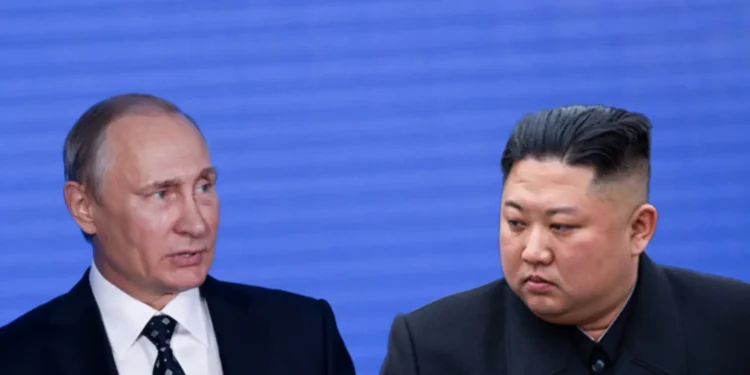The treaty between North Korea and Russia, which has already been ratified by Putin, mandates both sides to provide ‘immediate military and other assistance’ to the other.
North Korea has ratified a mutual defense treaty it had signed with Russia earlier this year in June. The treaty calls for both sides to support one another in the event of an armed attack on either party. North Korea’s official news agency, KCNA has reported that the Treaty of Comprehensive Strategic Partnerships will come into effect once both sides have exchanged ratification instruments.
During Russian President Vladimir Putin’s visit to Pyongyang in June, North Korean leader Kim Jong Un had described this treaty as a means to enhance bilateral relations between both countries. The treaty, which has already been ratified by Putin, mandates both sides to provide ‘immediate military and other assistance’ to the other, marking the beginning of one of the strongest links between these countries since the end of the Cold War.
Some of the main takeaways from this treaty include:
- Non-agression, non-interference in internal affairs and respecting national sovereignty and international legal frameworks.
- Facilitation of a new and equal international order by engaging in strategic and tactical cooperation.
- Activate immediate communicate channels in the event of an armed assault on either country.
- Avoid entering into alliances with third parties which may threaten the sovereignty of either country.
- Work together to tackle traditional as well as non-traditional security threats such as food security, health, communications etc.
- Cooperation in trade, investments and supply chains. Establish free economic zones which support both sides and work together to improve technology and research.
- Support cross-border trade links and work towards the establishment of business bodies which would regularly hold forums and exhibitions.
- Along with military cooperation, the treaty also calls for the establishment of a multipolar world order.
There is much international criticism surrounding this treaty, as North Korea has sent more than 10,000 troops to aid Russia in their war against Ukraine. According to US, Ukrainian and South Korean officials, some of these soldiers have even engaged in combat by the Ukrainian border and even suffered casualties.
Ukraine President Volodymyr Zelenskiy said last week that the clash between North Korean and Ukraine forces ‘opens a new page of instability in the world.’ Kyiv has alleged that 12,000 troops, 500 officers and three generals are in Russia seeking training in different military bases. However, Western intelligence officials have been unable to confirm these claims as they believe the Russian military could be trying to pass off the North Koreans as Buryats, a Mongolian tribe from the region of Siberia.
Neither Moscow nor Pyongyang confirmed that the troops had been stationed near Ukraine, but both countries did emphasise that their new treaty was in compliance with international law. North Korea has maintained that they support the Russians in their attempt to safeguard their sovereignty and national interest, as the war with Ukraine has waged on for the past two years. Both sides however have been consistent in their denial that North Korea provided ballistic missiles and artillery shells which Russia used against Ukraine.
This treaty also comes at amidst speculation from the West that Russia could provide the necessary technology for North Korea to enhance their nuclear and capabilities and missiles in exchange for troops. This is an uncommon step from Kim Jong Un who has typically avoided deploying his country’s troops abroad.
Strategic analysts have commented that North Korea’s involvement in the Russia-Ukraine conflict can prove to either yield gains or be a gross miscalculation. This NATO-like treaty between the two countries is certainly being scrutinized by the West and is bound to bring up much tension in the international system. The ripple effects of this comprehensive defense partnership are yet to be examined.


















